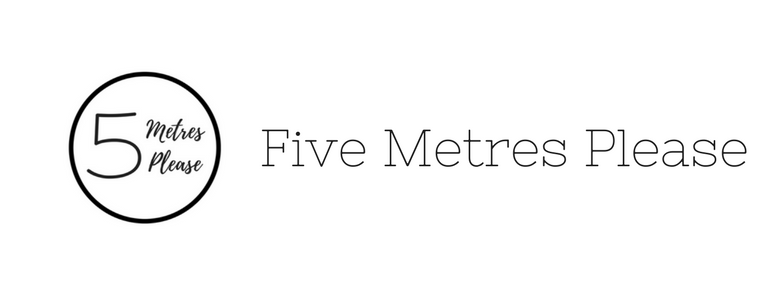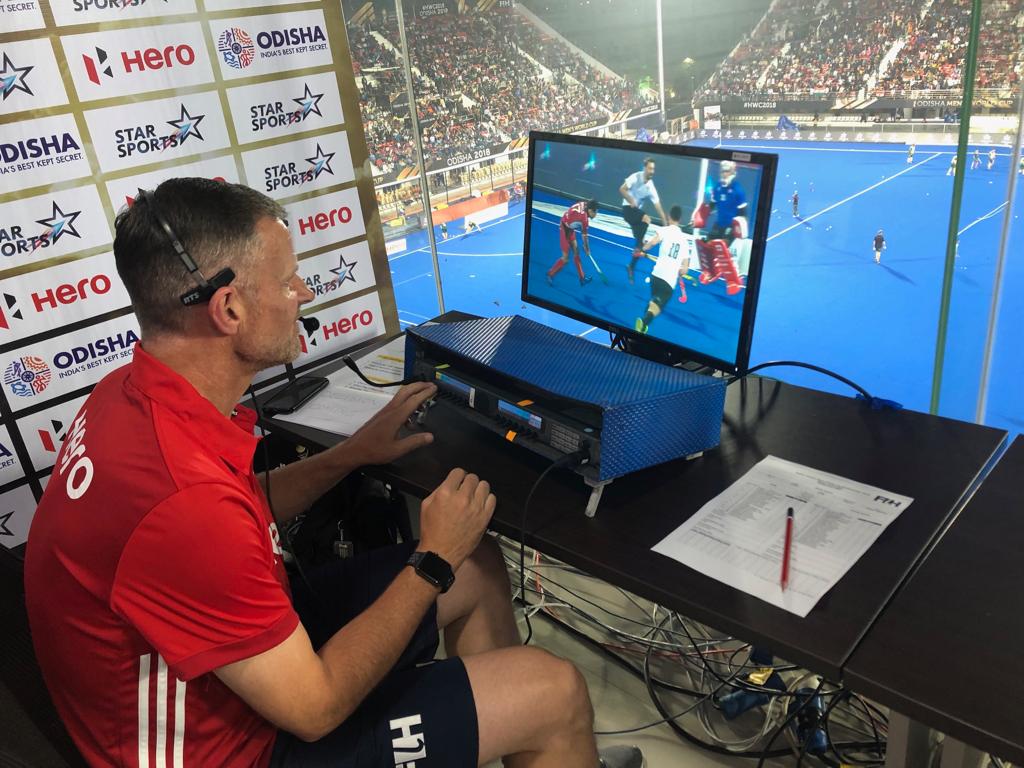Controlling Your Emotions

We’ve all been there. It’s a tense match, and either you made a mistake or the team doesn’t like your decision. Things are getting heated, it’s a conflict situation. A game changing decision. You’re feeling ALL. THE. THINGS. And then it happens…
BOOM!
Your head explodes.
Well, not really. But I tell you what, there have been a few occasions where I’ve felt like mine has…
You probably could have handled the situation a little better if you hadn’t let your emotions get the better of you. And this applies to a bunch of different emotion and/or situations. Fear of conflict or mistakes, anxiety over performance or how you handled a situation, self-doubt around your decision, loss of confidence in yourself… none of these emotions are helpful to our performance, and actually, if you let them take control it can end up impacting the rest of your game!
But controlling your emotions isn’t just about the negative emotions. If you are feeling excited and happy about a game, your performance is generally much, MUCH better. If you’re proud of a great advantage goal or how you managed a situation, that tends to carry you through some great decisions following!
Positive emotions help us to perform well, and so we want to do what we can to help us keep feeling those feelings!

And it’s not just out on the field where controlling our emotions can be helpful – if you are feeling nervous before a big game, then regulating your emotions can help you to reach a better mental state, making sure your nerves don’t affect your performance too much and your game goes well.
Likewise, if something bad happens in your game, controlling your emotions and though processes AFTER the game can help you to view the experience through a learning-lens, rather than a meltdown-inducing, anxiety-provoking, blubbering mess of a catastrophe-lens. Not that I’m speaking from experience or anything… ha…ha…haahhh….. 😬
Being able to turn down the dial on the emotional side is fundamental in order to look at the situation and see what you could have done better. If you know what to do next time, it reduces the anxiety about that situation happening again, because now you’re a bit more prepared. But if you only look at the situation through the emotions you experienced, you can’t come to those conclusions, which means you’ll be worried about it happening again. So learning to control your emotions is a really good thing!
So how can we learn to control our emotions so that we can live our BEST UMPIRE LYF?
Get in the zone, kids. And let’s get inside your head.
Controlling your emotions

What is emotional regulation?
Basically, it’s controlling the emotions you feel in relation to, or during, certain events.
It’s using strategies, either automatically or deliberately, to change how we feel.
- You might want to initiate a certain feeling – like being calm in a tense moment in the game, or being ‘revved up’ or ‘in the zone’ before a game.
- Maybe you’d like to maintain an emotion – such as feeling great after absolutely nailing a series of decisions, or feeling calm towards the end of a match when it starts to get heated.
- You can also change your emotions – such as when you’re scared you just made a massive mistake and you need to calm down so that you don’t mess up the next 5 decisions, or if you’re really nervous before the game and you think being excited or calm would be more helpful.
- Or you can display emotions, perhaps different from the ones you are ACTUALLY feeling – this is a great technique for when you want players to know you weren’t happy with a tackle for example. Get your grumpy pants on to get the message across, even if you don’t actually feel angry.
The emotions we experience flow through to our thoughts, body (heart rate, adrenaline rush, etc.) and our actions (facial expressions, movements). This can impact on how people, such as the players/coaches/spectators, see you and react to the situation. So being able to display the appropriate body language and facial expression starts with expressing the most appropriate emotion. And sometimes this can take a bit of brain power and effort on your side.
How does one regulate their emotions?
There are two main techniques to help regulate your emotions, and they come with fancy names: Cognitive Reappraisal and Expressive Suppression
Cognitive Reappraisal
This is a fancy way of saying ‘changing the way you think about something’.
Essentially, you think about a situation you wanted to happen differently, and you reassess in your head how you can feel differently about it.
An off-field example: You made a big mistake in your game and you’re thinking after the game about how much you stuffed up. This makes you feel disappointed, lose confidence in your ability, scared that it will happen again… all the bad feelings.
Cognitive reappraisal is about changing your emotions to think about it as a learning opportunity instead. Accept that it happened, think about what you would do differently next time, and maybe even be grateful that you were given that learning opportunity because now you know you’ll be able to handle a situation like that better next time.
An on-field example: You’ve blown a penalty corner that the defensive team REALLY doesn’t agree with and they’re getting all up in yo’ grill about it. Your immediate reaction is to get angry and respond aggressively, or maybe to freak out and crawl into your shell. Cognitive reappraisal is about stopping for a second and changing those thoughts to “wait, maybe there is a reason they’re angry…maybe I missed something”, or “This is a tight game and they are really passionate – let’s handle this calmly”. It’s kind of like looking at it from their perspective in a way – a little bit of empathy, if you will.
Expressive Suppression
This is when you basically squash whatever emotion you are feeling. You suppress the emotion and stop the thoughts in order to return to an emotional “neutral baseline”, so to speak.
Be careful with this one. It can be really helpful in the moment – for example, when you’ve made a big mistake and you’re feeling awful, your emotions and head are all over the place. In this situation, just suppressing everything to wipe your mind and emotions can help you focus on the game and get the next few decisions right, rather than messing those up too because you’re too busy thinking about what just happened and freaking out so that you can’t concentrate on the game.
BUT, emotional suppression isn’t helpful, or healthy, after the game/off the field. You need to process what happened, and the emotions you felt, in order to learn from the experience and move on. This self-reflection (or even reflection guided by your umpire coach or even a friend) helps you to experience those emotions and then start cognitively reappraising them (see above) in order to change how you feel about what happened. Turning that situation from a panic-attack inducing situation to a learning opportunity. You can’t do that if you just keep on suppressing the emotions. TRUST ME. I’ve been there, done that. It doesn’t work.
Emotional suppression also takes a considerable amount of brainpower, and so it can be very draining. If you’re doing it for a whole match then you’re going to be mentally exhausted, and this can also impact your performance. So, if you get a break in play (for example, when the ball is down in your co-umpire’s area), take a minute to think about what happened and then start the cognitive reappraisal process to change how you think about it.
But ACTUALLY how do I regulate my emotions?
This takes some time and practice, so be patient and keep at it!
Positive self-talk
Talking to yourself in your head (or even out-loud, but you might want to save that for off the pitch!) can help to change or maintain your emotions.
For example, when you’re nervous or if you’ve just made a mistake, saying to yourself, “You’ve got this!”, “It’s ok, next one” or “You’re going to be awesome!” can be really helpful in making you believe in yourself.
An example of using self talk to maintain a positive emotion is when you’ve just had a great run of decisions and you say to yourself “You are NAILING this game!”, “BOOM!” or “Keep it up you dead-set legend!”.
Focused attention
Blocking everything else out. There is only this moment. Nothing before, nothing after, only this moment. Only this decision. No decisions that came before will influence this one. And no decisions after this one will be thought about. Block it all out and focus on the here and now.
Trigger words
Trigger words can be a life-saver, especially when you are Under. The. Pump. I like to use the trigger word “FOCUS”. This helps me to focus on what is happening in front of me so that I can make the right decision, rather than think about what just happened.
When you get the feeling of being overwhelmed, think of your trigger word. It could be CALM. Or FOCUS. Or HIPPOPOTUMUS. It doesn’t matter. What matters is that when you say that word to yourself, it triggers you to go through a process. To step back from the current situation and calm yourself. This gives you brain space to be able to work on the situation at hand. It all happens in a micro-second, but that’s all you need.
My other focus word is “BREATHE”. I focus only on my breath, the feel of the air in and out of my lungs, for one whole breath.
Mental Imagery
Think of a time when you felt the emotion you WANT to feel. Then replay that situation in your mind. You can do this before a game to get in a good, positive frame of mind, or even when you’re going through the cognitive reappraisal process: think about the situation that happened, think about what you would do next time and then actually IMAGINE yourself doing that.
Self-reflection
This one is super important, particular after a game or during the week when you’re preparing for your next game. Think about the situation that you would like to handle the best way you possibly can – think about what you’ll do and how you’ll feel. Cognitively reappraise the situation in order to make it a positive experience rather than a negative one.
Create emotional profiles
This is based around trying to replicate or induce positive emotions to help you perform at your best.
- If you know you perform better when you’re excited, or ‘revved up’, about a game, maybe play some upbeat music to help you get into this state. Think about the exciting atmosphere, about having a great game with your co-umpire where you both blow lots of amazing advantage goals, etc.
- If you are better when you are calm, then use chilled-out music to get your head in that zone, or even sit by yourself in a quite spot and just zone out for a minute. Get into that emotional head-space.
- Maybe your best performance comes when you’re in full serious/professional mode. Get yourself feeling organised, in control and business-like.
Doing similar things each time to get you into your optimal headspace will help to create that peak performance zone each time before you umpire. So, identify what emotions make you perform at your best, and develop your ‘umpiring emotional profile’ around this.
Make sure you practice!
Just like physical training keeps your body in it’s best shape, practicing these will help keep your mind in the best shape too.

Hot tips on controlling emotions…
It’s important to note that everyone will respond to, and thus perform better, with different emotions. Some people perform at their best when they feel calm, others perform better when their excitement levels are high, and others will perform well under pressure. You need to recognise what state works best for you, or for the umpire you are coaching.
For example, at a tournament will you perform best when you put pressure on yourself or when your umpire manager has high expectations? Or will you perform better by having a calm take-it-as-it-comes attitude or when your umpire manager let’s you do your own thing? This might be different in different situations (different games, different tournaments, different stages in your career), so make sure you are always re-evaluating what works best for you.
Be careful with emotion suppression. It might be helpful to suppress emotions in the heat of the moment so that you can just get on with the next decision/get through the match, but you HAVE to sit down after the game and work through what you felt. Don’t just keep it all bottled up and squashed down; it’s not healthy and it could all just spill over at some stage. Process what you felt and why, whether it was helpful or not, how you would do things differently next time, and then MOVE ON.

So there you have it. You are now a master of your emotions. Or, at least, you will be if you practice these tips often enough! Try it out and see your umpiring shoot for the sky! Go get ’em tiger.
What do you think? Let me know in the comments below, or in the comments for this post on Facebook!
If you think other people might find this useful, please share it around through social media or by using the buttons below Sign up for the newsletter to get new posts delivered straight to your inbox, and follow me on Facebook, Instagram and Pinterest for extra tips, tricks and behind the scenes banter!
Believe Perform have some more great articles on sports psychology. Check them out if you’re interested in more mental fitness stuff!





You must be logged in to post a comment.